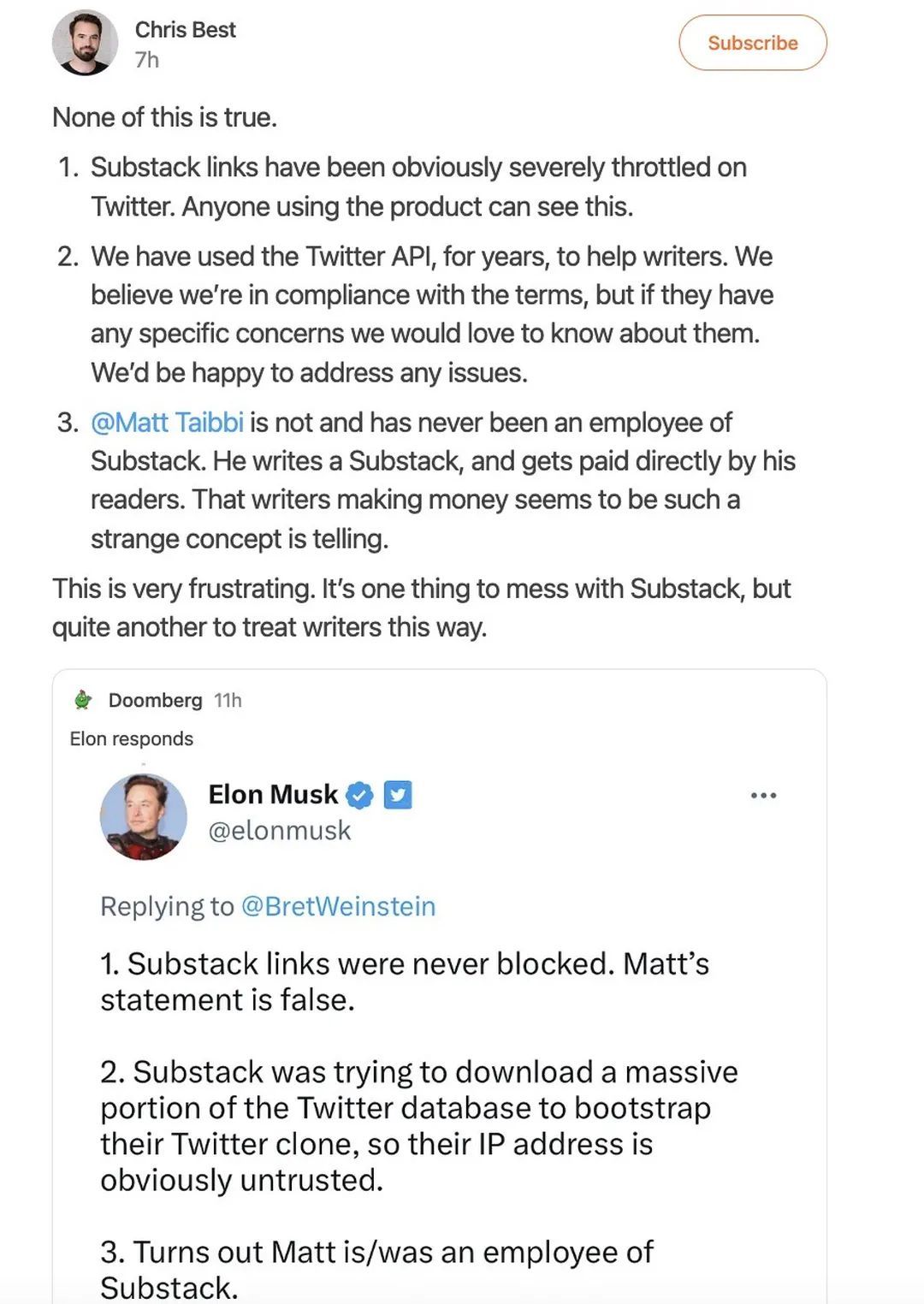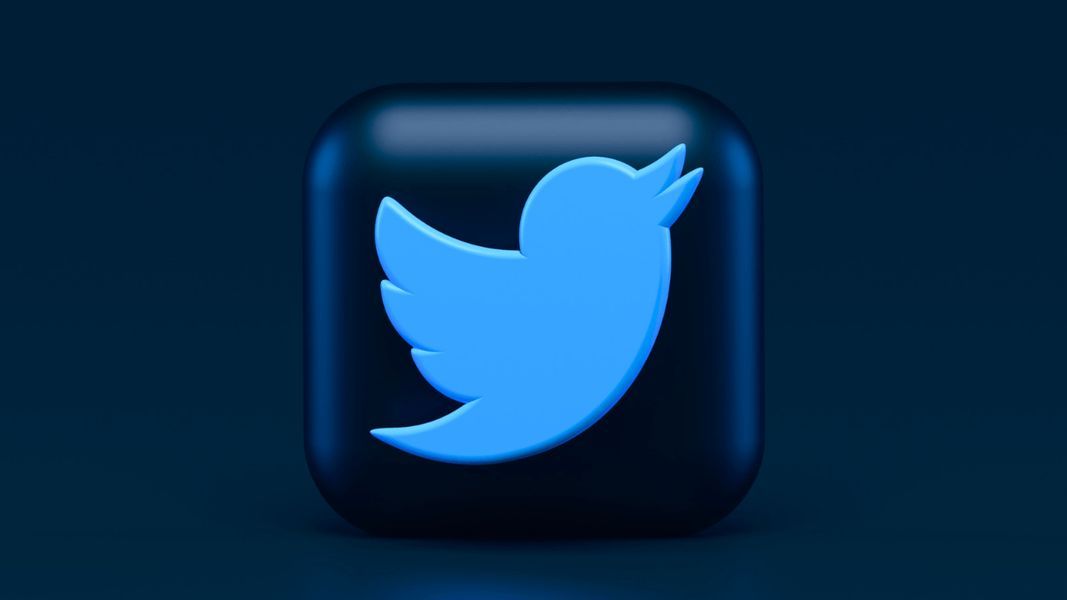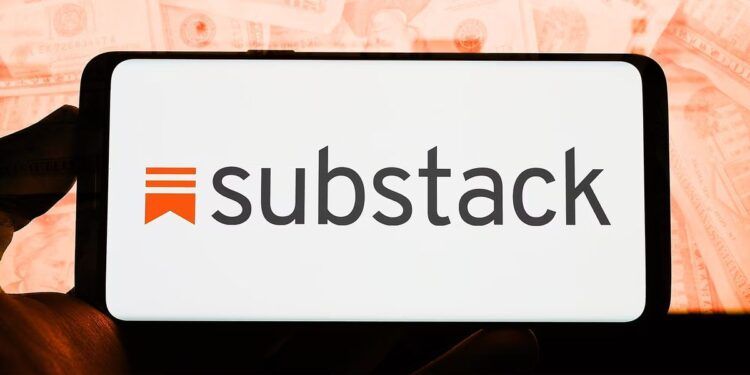- Substack recently introduced Notes, a feature similar to Twitter that allows writers to share short updates with subscribers.
- Twitter responded by blocking Substack-related content, causing backlash from its user base of independent small business owners who rely on Substack for enterprise software provision.
- Elon Musk claimed that Substack was trying to download a massive portion of the Twitter database to bootstrap their Twitter clone, which Substack CEO Chris Best refuted.
- The conflict highlights the challenge facing social media companies in balancing free speech and content moderation.
Substack, the popular subscription newsletter platform for writers, recently introduced a new feature called Notes that functions similarly to Twitter. The new feature allows writers to share shorter updates or thoughts with their subscribers, something that was previously not possible on the platform. However, the launch of this new feature has caused quite a stir on Twitter.
Twitter blocks Substack-related content
Twitter, a social media giant that has been in the news frequently of late for various reasons, including concerns around its handling of free speech and misinformation, responded to Substack’s new feature by blocking likes, retweets, and even search results containing the word “Substack”.
The move prompted a significant backlash from Substack’s user base, which mainly comprises independent small business owners who rely on the platform for enterprise software provision. Many have vowed to leave Twitter and instead use Substack Notes.

Elon Musk, who is now the CEO of Twitter, provided an explanation for the decision to block Substack-related content. In a response to a tweet, Musk claimed that Substack was “trying to download a massive portion of the Twitter database to bootstrap their Twitter clone,” which he found amusing.
It is worth noting that Musk’s comment was made without any evidence to support his claim.
Substack CEO Chris Best responded to Musk’s accusation in a post on Substack Notes, noting that Substack has used the Twitter API for years and that he believes the company is in compliance with the terms of service.
Best also expressed frustration with the situation, noting that Substack writers are not only users of the platform but also customers of his enterprise software product. As a result, any disruption to Substack links has a more significant impact on individual small business owners than on the platform company itself.
The ongoing conflict between Substack and Twitter highlights the contentious issue of free speech on social media platforms. The current situation has led many to question the role of social media companies in moderating content, particularly as more users turn to independent platforms such as Substack for their news and commentary.

It is worth noting that Andreesen Horowitz, a prominent investment firm, has a stake in both Substack and Twitter. This connection has led some to speculate about potential conflicts of interest, particularly given the current situation.
The response to the Twitter/Substack conflict has been mixed, with some defending Twitter’s decision to block Substack-related content, citing concerns around misinformation and hate speech on the platform. Others have criticized Twitter’s actions, arguing that the move amounts to censorship and infringes on free speech.
The ongoing debate around free speech and moderation on social media platforms highlights the broader challenge facing these companies as they navigate increasingly complex issues around content and community management.
As more users turn to independent platforms such as Substack for their news and commentary, it is clear that the issue of free speech and moderation will remain a contentious one. Ultimately, it is up to social media companies to strike a balance between protecting their users and upholding the principles of free speech and open dialogue.





